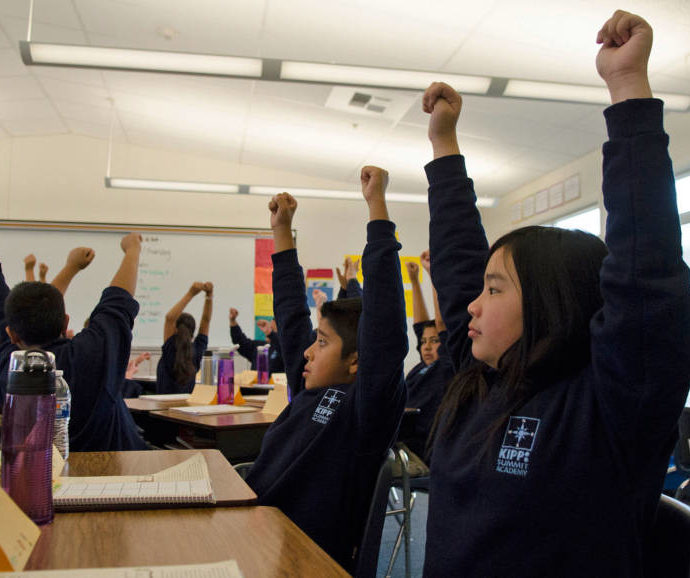Courage to Change: What it takes to shift to restorative discipline
ByKatrina Schwartz
Read the full article and listen to the podcast at KQED.org >
The Knowledge is Power Program (KIPP) has become well known in the charter school movement for getting low-income kids into college. But KIPP schools also have a reputation for strict discipline and classroom management practices that require conformity. Over the past decade, many KIPP schools have been shifting their strategies, moving from strict no-excuses style discipline to restorative practices. There’s a recognition among educators in the network, and outside of it, that kids need opportunities at school to practice the social and emotional skills that will help them be resilient after they graduate.
KIPP Summit Academy in San Lorenzo, California has been leading the way in this effort. The school began shifting to restorative practices seven years ago and now they’re seeing the academic and social results of that work. Teachers spend significant time and energy planning activities that push students to talk about difficult or emotional subjects, like friendship — a hot topic in middle school. They’re trying to help students build an emotional toolbox, so they have the language to discuss conflict when it arises.
It’s been a long hard road, but one that has worked well enough that all KIPP Bay Area schools, and many in other regions as well, are making the shift. But implementing restorative practices doesn’t happen overnight; it’s a long, deliberate process of shifting mindsets among educators, parents, and students. And it doesn’t always go smoothly at first.
“The way most of us grew up in education was that the teacher knew everything, the student knew nothing; the teacher gave directions, the student followed directions; the teacher talked, the student listened,” said Ric Zappa, director of school culture for KIPP Bay Area Schools. He led the changes at KIPP Summit Academy and is now helping other school leaders making the shift. He knows how hard it can be — he’s been there.
This fifth and final episode of the second season of the MindShift podcast takes us inside two KIPP schools: one has already made the transition to restorative justice and has all the staff and students on board. The other is just beginning the shift and running into snags along the way.
